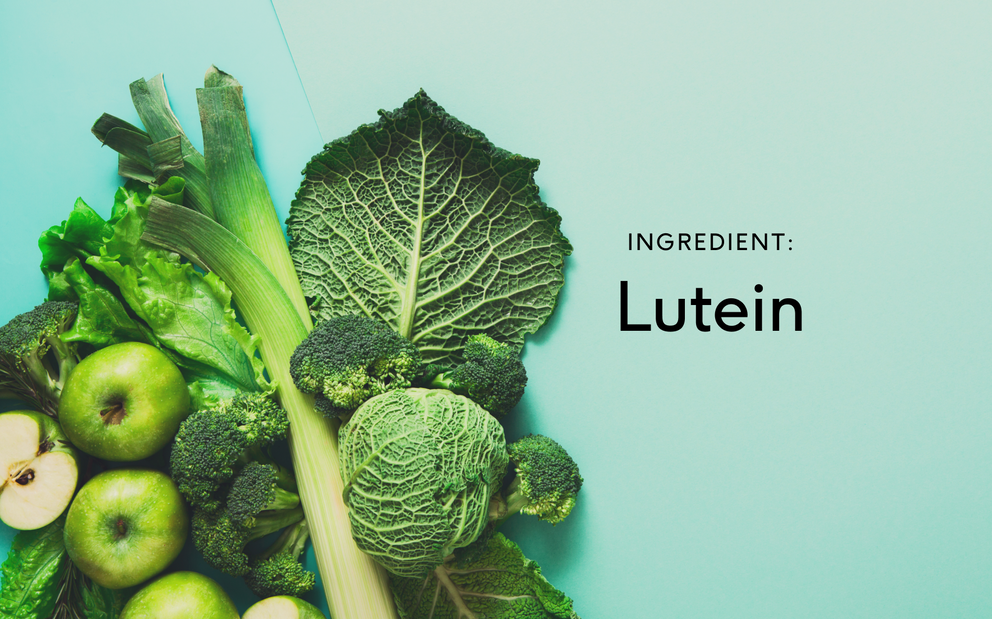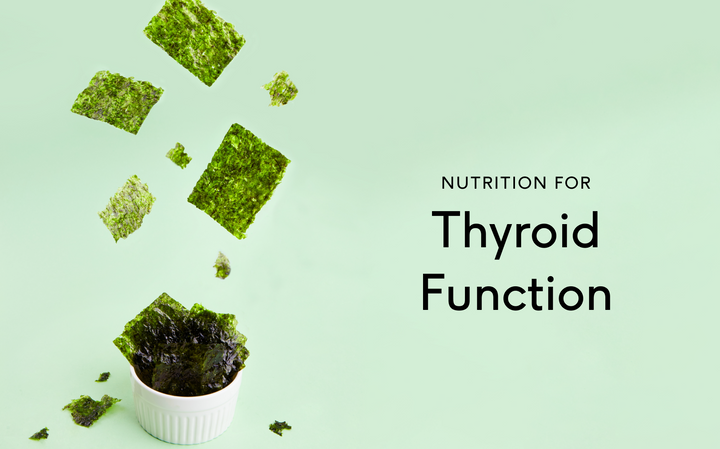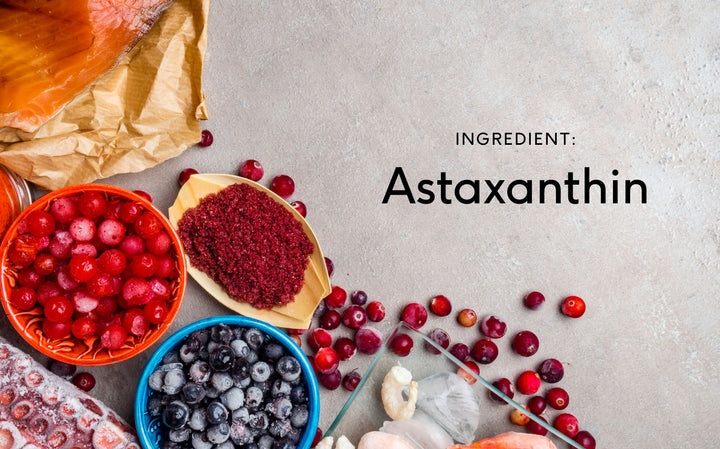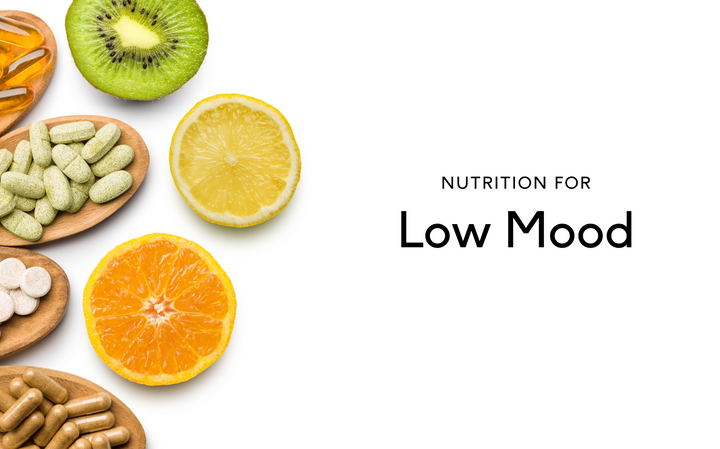Learn About Lutein in 5 Minutes
Table of contents

What is lutein?
Lutein is one of approximately 600 carotenoids, and these substances are only produced within plants. Carotenoids make their way into animals when their plant hosts are consumed, which is one of the traditional ways that lutein has entered the human diet.
The more we learn about the dangers of blue light, the more attractive lutein becomes. No matter how high you crank the “night shift” function on your laptop or smartphone, blue light still leaks through, and then it’s up to lutein to neutralise the threat.
This nutrient absorbs into an organ within your retinas that nullifies blue light. Without enough lutein, blue light does even more damage to your eyes than it would normally, but when you load up on plenty of this plant-based nutrient, you’ll be a blue-light-defeating superhero no matter how late you work into the night.
- Absorbs directly into your macula retina to improve your retinal and overall eye health
- Interconverts with zeaxanthin in the body, which is also used in eye health
- May improve cognitive functioning
- May improve your cardiovascular health
Why we love lutein
While the most-publicised benefits of lutein have to do with this substance’s reported benefits for eye health, it appears that lutein has a variety of other benefits as well.
More research needs to be done into lutein to fully understand its benefits and potential risks, but here at WeAreFeel, we found the evidence sufficient to warrant including lutein in our new Feel Multivitamin™. The main reason we include lutein in your daily supplement capsule is to improve your eye health, but if what certain studies have to say is true, the benefits of lutein are far more than just in the eye of the beholder.
Unbelievable benefits of lutein
Here’s an overview of the scientific research that has been conducted to get to the bottom of the effects lutein appears to exert in the body:
Ocular Health Benefits
Lutein’s effects in the eyes are the most-studied properties of this nutrient. At the same time, however, researchers have also explored the idea that lutein might provide benefits throughout the body.
When you ingest lutein, it absorbs into your blood, and it is then transported to your retinas. Specifically, lutein is absorbed by the macula lutea, which is a pigmented region near the centre of the retina. Scientists haven’t determined exactly how the macula lutea benefits from this absorption process, but research has made it clear that lutein has ocular benefits that could save you thousands on optometrist bills.
A scientific review of the available evidence looked at the effects of lutein on a variety of ocular conditions, and this research especially centred on the benefits this natural substance might offer for macular degeneration (AMD). In the end, the researchers concluded that “several epidemiological studies that link lutein supplementation with decreased risk of AMD.”
The concluding remarks of the review go on to say that supplementation with lutein “has also been positively linked to increased macular pigment density and improved multifocal electroretinogram responses.” Of the utmost importance, however, is lutein’s reported nullification of the harmful effects of blue light.
Over the last few years, a lot of progress has been made in the arena of blue light research and how this type of light can harm the eyes and contribute to ocular diseases. If you don’t already, enable night shift on your electronic devices, and keep in mind that you can get warm-light LED bulbs that don’t emit very much blue light.
With enough lutein, however, blue light won’t be as harmful to your eyes regardless of which preventive measures you take. According to the scientific review referenced above, lutein “has a significant role in protecting against AMD, most likely through its absorption of the harmful blue light, as well as its inherent antioxidant properties.”
Lutein appears to absorb blue light, which protects your overall eye health. Take a capsule of Feel Multivitamin™ every day, and stop worrying so much about your occasional late-night Netflix binges.
Interconversion with Zeaxanthin
Zeaxanthin is another carotenoid that’s essential to eye health, and it’s practically indistinguishable from lutein. These two substances are interconvertible in the body; lutein can be changed into zeaxanthin, and visa versa. Therefore, any potential zeaxanthin deficiency can also be solved by supplementing with lutein; it isn’t necessary to also supplement with zeaxanthin.
Cognitive Functioning Benefits
A fascinating 2013 study sought to establish the relationship between a few different substances and cognitive health in elderly people. Out of the participants in the study, 78 were octogenarians, and 220 were centenarians, and the researchers found that “lutein, zeaxanthin, and β-carotene concentrations were most consistently related to better cognition (P < 0.05) in the whole population and in the centenarians.” The authors of the study went on to report that “lutein and β-carotene were related to cognition with lutein being consistently associated with a range of measures.”
Increased Cardiovascular Health
Interleukin-6 (IL-6) is one of the most prevalent pro-inflammatory compounds in the body, and the more lutein you have in the body, the lower your system-wide IL-6 concentration becomes, one study says. Therefore, lutein appears to be an anti-inflammatory substance that deserves further research for this application.
Lutein has many significant benefits for health; we've included 2mg of Lutein in Feel Multivitamin to ensure you feel your best every day.
Is lutein water-soluble or fat-soluble?
Lutein is fat-soluble. Therefore, it takes a while for this substance to absorb into your system, and once you absorb it, lutein stays in your body for a while.
Where can lutein be found naturally? Common sources of lutein:
Lutein is usually present in high concentrations in green, leafy vegetables. Since this substance is available in lots of different plants animals eat, some animal products, such as eggs, are also high in lutein.
5 foods/drinks containing lutein
1. Spinach
2. Kale
3. Eggs
4. Parsley
5. Broccoli
What is the recommended daily value for lutein?
There is currently no NRV of lutein since this substance is not recognised as an essential vitamin or mineral. As we learn more about the benefits of lutein and the dangers of blue light, however, it’s likely that the healing power of this substance will become more widely-recognised.
Can you absorb enough of lutein from food?
Lutein is only available in food in very small quantities. Since there is no recommended daily value for this substance, the definition of “enough” lutein depends on your purpose. Do you simply want to get enough lutein to protect your retinas and keep your eyes healthy? Then you can probably rely on food sources.
If you want to use lutein to protect yourself from blue light, which is rapidly becoming an occupational hazard in the tech-24/7 age, however, you’ll need to take supplements to get the lutein you need for your purposes. Plus, protecting you from blue light is only the beginning of what lutein has to offer.
Why is lutein necessary for your body?
The main function of lutein is to help your retinas function properly, and this substance can transform into zeaxanthin in your body, which is also needed for proper retinal health. At the same time, however, scientists are starting to recognise that lutein has other benefits that are far more than just in the eye of the beholder.
Functions of lutein
Blue light absorption: The macula lutea in the retina absorbs the lutein that you consume, and in addition to preventing blue light damage, this natural nutrient also appears to reduce your risk of developing macular degeneration.
Cognitive increase: Limited research indicates that lutein and zeaxanthin supplementation increases cognitive functioning in elderly people. Beta carotene was also researched, and it was determined that lutein performed better.
Cardiovascular benefits: Lutein appears to reduce the levels of interleukin-6 in your body, which is a pro-inflammatory substance that contributes to cardiovascular disease.
Symptoms of lutein deficiency
Since this substance has not been recognised as an essential nutrient, it is not technically possible to be deficient in lutein. Failing to consume reasonable levels of this nutrient, however, may result in increased blue light damage in your eyes and increased likelihood of developing macular degeneration.
Furthermore, if it’s true that lutein has other benefits that extend beyond the reach of eyesight, then you might be missing out in other ways if you don’t include this nutrient in your diet. Vegans and others who don’t eat animals or especially likely to benefit from the cardiovascular and cognitive benefits provided by lutein.
How long do you need to take lutein to start experiencing its benefits?
Since lutein is a fat-soluble nutrient, it may take several weeks to a month to notice the desired benefits.
Consistency is key and our research recommends taking your Feel supplements for at least 3 months to allow your body to adjust and provide the desired benefits.
How long does it take for your body to digest/absorb lutein?
Various factors affect the bioavailability of lutein. At this point, there are not a lot of concrete data on the bioavailability of this nutrient, but we do know that changing the formulation of lutein alters its absorption rate.
How long does lutein stay in your body after you take it?
Lutein is stored in the retinas and in other parts of the body. As a fat-soluble nutrient, lutein tends to build up and stay in your tissues for quite some time.
Is lutein an antioxidant?
Like other carotenoids, lutein appears to have potent antioxidant benefits. This antioxidant profile is most likely responsible for lutein’s benefits both inside and outside of the eye, and vegans need plenty of antioxidants to make up for the nutrients in animal products.
Can you overdose on lutein? What are the effects?
Only limited data are available on the effects of lutein overdose. One case study, however, details how a Filipino woman contracted crystalline maculopathy after consuming an incredibly high dose of lutein. Since there is no NRV for lutein, some consumers might accidentally use too much of this substance, but rest assured that we include a safe dose of lutein in our Feel Multivitamin™.
Does lutein dissolve, flush out, or build up in the body?
Lutein builds up in certain tissues in the retina. It may also build up in other tissues, but it gradually flushes out as it is used.
Can you take lutein during a diet?
There is no indication that consuming lutein could have any bearing, either positive or negative, on your dietary habits.
Are there synthetic forms of lutein?
Due to the popularity of this nutrient, scientists have explored the possibility of synthesising lutein in laboratory conditions. While these experiments have been largely successful, natural lutein is still more cost-efficient in most situations.
Why might synthetic forms of lutein be better?
The main benefit of synthetic lutein would be reduced cost.
Absorption rate of synthetic lutein
Researchers were capable of making 74%-pure lutein in a Chinese lab.
Why might natural forms of lutein be better?
In most cases, researchers only recognise the detriments or dangers of synthetic nutrients after they have been on the market for years. The natural form of a nutrient is usually superior, so attempts to chemically synthesise lutein may be doomed to failure due to market economics.
How to take lutein
Lutein can be consumed in food or in supplements.
Lutein trends in medicine
Lutein and zeaxanthin belong to a class of compounds called macular xanthophylls, and a recent study added new weight to the argument that these plant-based nutrients may provide cognitive benefits. Even if you’re taking lutein for the ocular benefits, this research serves as a reminder that we’re only starting to learn what lutein has to offer.
Why everyone should be taking WeAreFeel supplements
With all the benefits of lutein in mind, it was a no-brainer to add this natural ingredient to our new Feel Multivitamin™. Anyone who spends time in front of screens needs to be taking lutein, and if you have macular degeneration, this nutrient might serve as a ray of hope. Whatever the case may be, the antioxidant benefits of lutein shouldn’t be overlooked, and now, you can feel safe in the knowledge that your daily Feel capsule contains all the lutein your eyes need.
Here’s the Proof
- The Effect of Lutein on Eye and Extra-Eye Health
- The Role of Lutein in Eye-Related Disease
- Research progress about the effect and prevention of blue light on eyes
- Lutein and Zeaxanthin—Food Sources, Bioavailability and Dietary Variety in Age-Related Macular Degeneration Protection
- Relationship between Serum and Brain Carotenoids, α-Tocopherol, and Retinol Concentrations and Cognitive Performance in the Oldest Old from the Georgia Centenarian Study
- Lutein exerts anti-inflammatory effects in patients with coronary artery disease.










































 Back
Back





